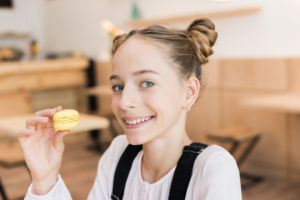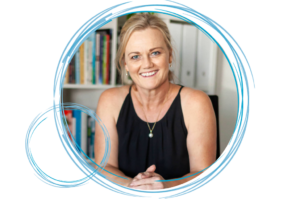YES – Teens can choose joy boosting thoughts.
Many teens can fall into the thought-habit trap and become accidental experts in telling us…..
* What isn’t working
* Things they don’t like
* Everything they’re not good at
* What sucks in their life
* When they’ve failed & flunked
* Who annoys them
* Times they’ve given up or want to pull out
* Stories of let down, disappointment and school stuff-ups

I respect all of these thoughts because sometimes they are spot on. It’s important that we hold space for young people to vent, share and off load what’s on their mind. This is a pivotal step in teaching teens it’s absolutely ok to think and feel what they think and feel (even if other people see it as negative).
If your teen is about to start high school or return after school holidays, keep an ear out for their thoughts. You’ll hear them being dropped into conversations and they may not even notice they are doing it –
I can’t stand that teacher (This is a great blog on teacher/teen relationships)
I bet I wont have any of my friend on my classes
I wish I didn’t get that subject, it was my 4th preference
I’m dreading assemblies
The teacher always makes the worst seating plan.
The idea is not to engage in toxic positivity, by unrealistically flipping thoughts to the extreme positive. Rather, it’s acknowledging their thoughts, bringing them to their attention without judgement and posing other questions.
Is there another way you/we could look at this?
Could you/we focus on something else instead?
With this in mind, in coaching sessions I often discuss this idea – 0ur thoughts and feelings have consequences and everything teenagers choose to do next, is the result of their own thoughts and feelings. The good, bad, wild and wacky. No judgement.
It’s equally important that we empower teenagers to have sufficient self-awareness to draw a line in the sand and make the decision to continue on their train of below-the-line thinking, or make a gentle but intentional change and work towards above-the-line thinking – which is a lighter, brighter and often more compassionate. The earlier teenagers learn the power of thought-choice and importance of good quality thinking, the better.
Thought awareness is integral to a life well lived – ROC and RISE, the book written especially for teenagers shares bucket loads of teen-friendly social and emotional wellbeing strategies immersed in stories and engaging tasks.
Alongside is Hello High School and its companion Hello High School – PLANNER – together they share over 85 tools to say goodbye drama and stress, and hello to 85 tips that boost friendships, mindset, productivity and success.
If we want our teenagers to build their own resilient, optimistic and confident attitude at school, sport, in relationships and life… all parents, guides and teachers must choose to gently challenge teenage thoughts, and teach teenagers HOW to choose and re-direct their thoughts to fall in their favour. This choice has a profound knock-on effect, triggering the release of feel-good chemicals in the body which support all efforts to be above-the-line. It also has enormous impact on the re-wiring the teenage brain, myelinating neural pathways associated with thinking more curiously, positively and compassionately about our life.
It’s habit building and memory forming. This process sets the scene for happier teens.
It’s easy and habitual to talk about what’s NOT good.
It takes effort, reminding and practice to talk about what IS good.
Adults can purposefully model above-the-line thinking in day-to-day life, which is wonderful for teenagers to hear and see in action. Being immersed in conversations and environments which genuinely lean toward above-the-line living, can be a massive boost for youth mental, emotional and social fitness.
Try directing teens thoughts above-the-line:
1. What is working?
2. How we can we improve how things work?
3. Think about all the things in life we do enjoy.
4. What are we good at?
5. Pay attention to all the uplifting, great and awesome people and experiences in our life.
6. Consider what we’ve learnt from our failures and how we can work towards making a difference.7. Give thought to all those we respect, like and love.
7. Remember the times we’ve pushed on and kept going.
8. Re-tell stories of hope, happiness and good times.
The habit of thinking above-the-line takes time and practice, but I’m sure you’ll agree it’s well worth it.
This is a vital part of a teenager’s solid and healthy transition in adulthood. It’s not instant or easy, but it paves the way to living a ROC solid life.
Have fun experimenting
R = resilience
O = optimism
C = confidence
Related Posts




